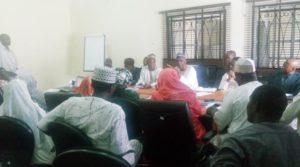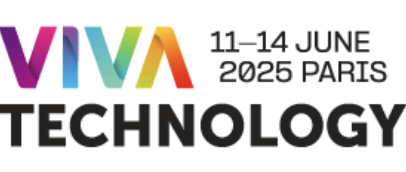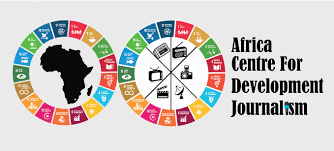Towards sustainable healthcare delivery in Kano
The Kano State Contributory Healthcare Scheme and Free Maternal and Child Health Service Charter are both aimed at improving access to quality and affordable healthcare services to all the citizens of Nigeria’s most populous state including pregnant mothers and under-fives children

By Adam Alqali
Undoubtedly, the future of all societies is dependent on the healthy wellbeing of its people, as such; no country could attain sustainable socio-economic development without a comprehensive, efficient and affordable healthcare system for its people.
Despite its strategic importance on the wellbeing of the people, achieving access to adequate healthcare for all has always remain a daunting challenge for governments of developing countries.
The challenge of establishing a sustainable and efficient healthcare model is one almost all nations have had to encounter as they develop and the fact that the world’s developed nations can boast of an efficient healthcare delivery systems is not unconnected with efforts by such countries to adopt various best practices in terms of healthcare delivery, globally.
The Kano state government, in a bid to improve access to quality and affordable healthcare services to its citizens is working towards establishing Kano State Contributory Healthcare Scheme, KSCHS, as well as the Kano State Contributory Healthcare Management Agency, KSCHMA, an organization that will have the responsibilities of promoting, regulating, supervising and ensuring the effective administration of the healthcare scheme.
The Kano State Contributory Healthcare Scheme, KSCHS, is an offshoot of the National Health Insurance Scheme’s State Health Insurance Program in Nigeria, which gives the state governments powers to create an agency that will manage its program under the supervision of the NHIS.
Therefore, Kano state constituted a high powered committee, which comprised commissioners of relevant ministries, labor and trade unions as well as religious institutions, to design modalities for the creation of the scheme and an agency that will implement it, in accordance with the cultural and religious values of the people of the state.

Speaking on the objectives of the contributory healthcare scheme, the Kano state coordinator of the National Health Insurance Scheme, NHIS, Shuaibu Ahmad Indabawa said, the scheme which is all-inclusive, was amongst others, aimed at ensuring all residents of Kano have access to effective, quality and affordable healthcare services.
“It is objectives are to protect families from the financial hardship of huge medical bills, limit inflationary rise in the cost of healthcare services; ensure equitable distribution of healthcare costs across different income groups and maintaining high standard of healthcare delivery services in the state,” said Indabawa, during an orientation meeting on the proposed Kano State Contributory Healthcare Scheme, organized by the Accountability Mechanism for Maternal and Child Health in Kano state, AMMKas. AMMKas, a coalition comprising of civil society activistss, staff of government health agencies and journalists is being supported by Maternal, Newborn and Child Health 2 programme, MNCH2, a project of the UK’s Department for International Development, DFID.
MNCH2 is aimed at creating a quality of continuum of care from pre-pregnancy through the first five years of the life of a child, to reduce maternal and child mortality and is being implemented in the 6 northern states of Katsina, Jigawa, Kaduna, Zamfara, Yobe and Kano. Also speaking at the meeting, MNCH2’s state team leader in Kano, Dayyabu Yusuf, described the Kano State Contributory Healthcare Scheme as a sustainable model for healthcare financing adding that the decline in oil revenue occasioned by the fall in oil prices at the global market has seriously affected healthcare financing in Nigeria.
“One of the major barriers to access to healthcare services other than geographic location is finance. However, healthcare services cannot be totally free, even in developed countries. For governments to be able to provide sustainable healthcare, they must adopt schemes like the Kano contributory healthcare scheme, which is what governments all over the world is doing,” said Yusuf.
Amongst others, enrollees of the scheme will benefit from consultation with medical specialists, that include physicians, pediatricians, obstetricians, gynecologists, general surgeons, orthopedic surgeons, ENT surgeons, dental surgeons radiologists, psychiatrists, ophthalmologists, physiotherapists as well as maternity (ante-natal, delivery and post-natal) care for four pregnancies that results in live births and preventive care like immunization.
Hafsat Kolo, the co-chair of AMMKas and chairwoman of the Kano-based Partnership for the Promotion of Maternal and Child Health, PPMCH, a coalition promoting the successful passage of the bill establishing the scheme and the agency that will implement it, described it as “an affordable and easy way of healthcare financing”.
On the other hand, health stakeholders in Kano state are also working towards the establishment of a Free Maternal and Child Health Service Charter, in a partnership with international development partners that include the World Health Organizations, WHO, United Nation’s Children’s Fund, UNICEF, Maternal, Newborn and Child Health, MNCH2, Society for Family Health, SFH, as well as Bill and Melinda Gates Foundation, amongst others. The mission of the free maternal and child health services charter is to provide a policy framework for effective healthcare services to pregnant women, from conception to six weeks after delivery; newborn children from birth to 28 days after delivery as well as under-fives children, without any consideration for financial, material gain or favour.
“The Free Maternal and Child Health Services Charter is for a specific group of people, it is specifically targeting pregnant women and under-five children. So, it is for a particular group of people that are vulnerable and therefore need the support of the government,” said Abdulrazaq Alkali, the executive director of YOSPIS, a Kano-based CSO spearheading work on the charter and efforts for its successful accent.
He said the free service charter will help in reinvigorating the Kano government’s commitment towards providing the standard required by both the service charter at facility level and the commitment required by the clients in order for them to access the free maternal and child health services.
“The charter is very detailed on the government’s commitment, the obligation of the clients, the standard provisions required of service providers and the processes of channeling complaints, in cases were clients done get the required service. So, it is very detailed and tried to separate the government’s programs with free maternal and child health services. It is like setting a guideline or framework based on which the government, clients and service providers can work to provide free maternal and child health services,” according to Alkali
No doubt, if successfully passed into law, both the Kano State Contributory Healthcare Scheme and the Free Maternal and Child Health Services Charter, will not only result in quality healthcare services delivery in the state, which is the most populous state in Nigeria; rather, it will also make healthcare services accessible and affordable to all including pregnant mothers and under-fives children.













